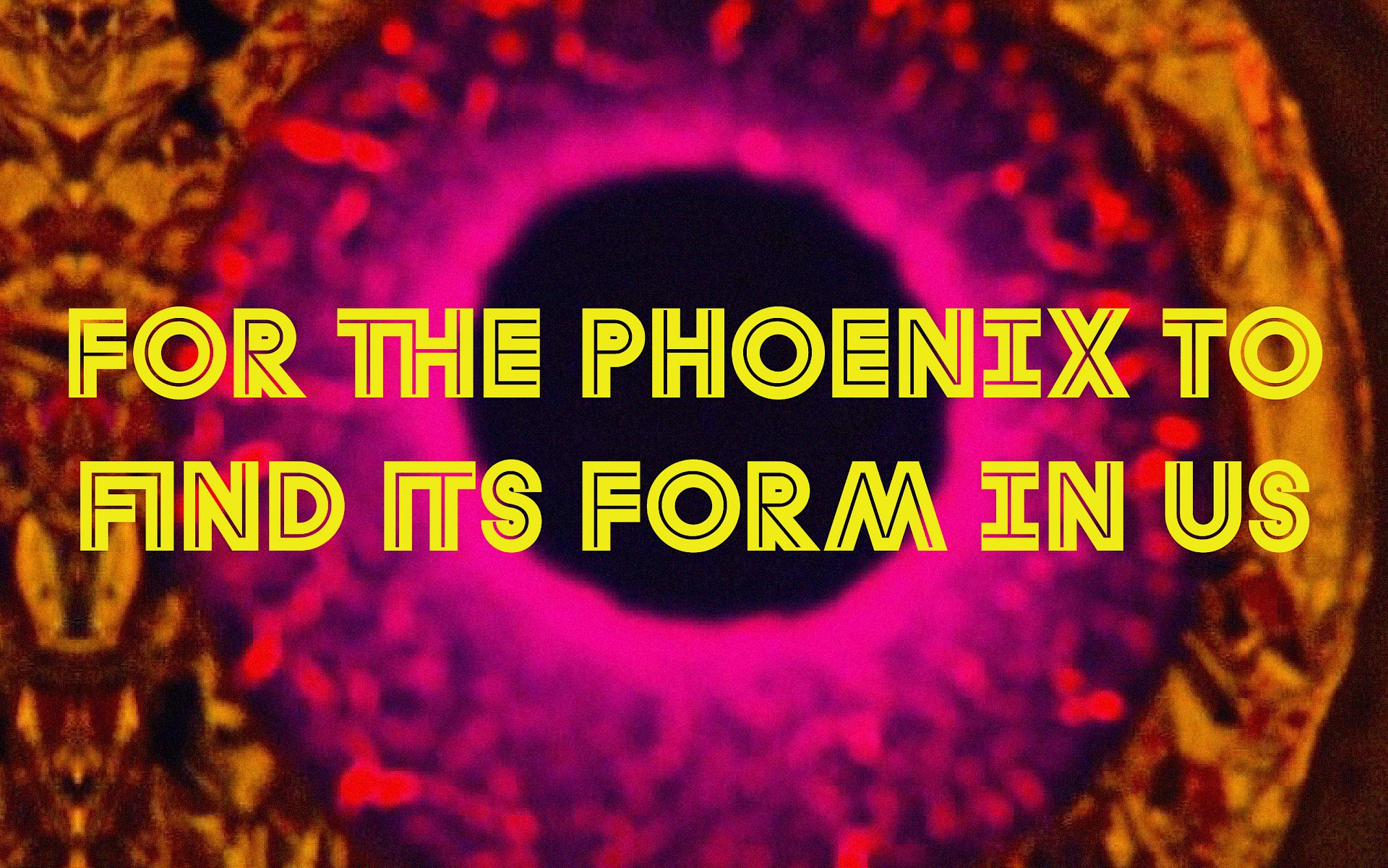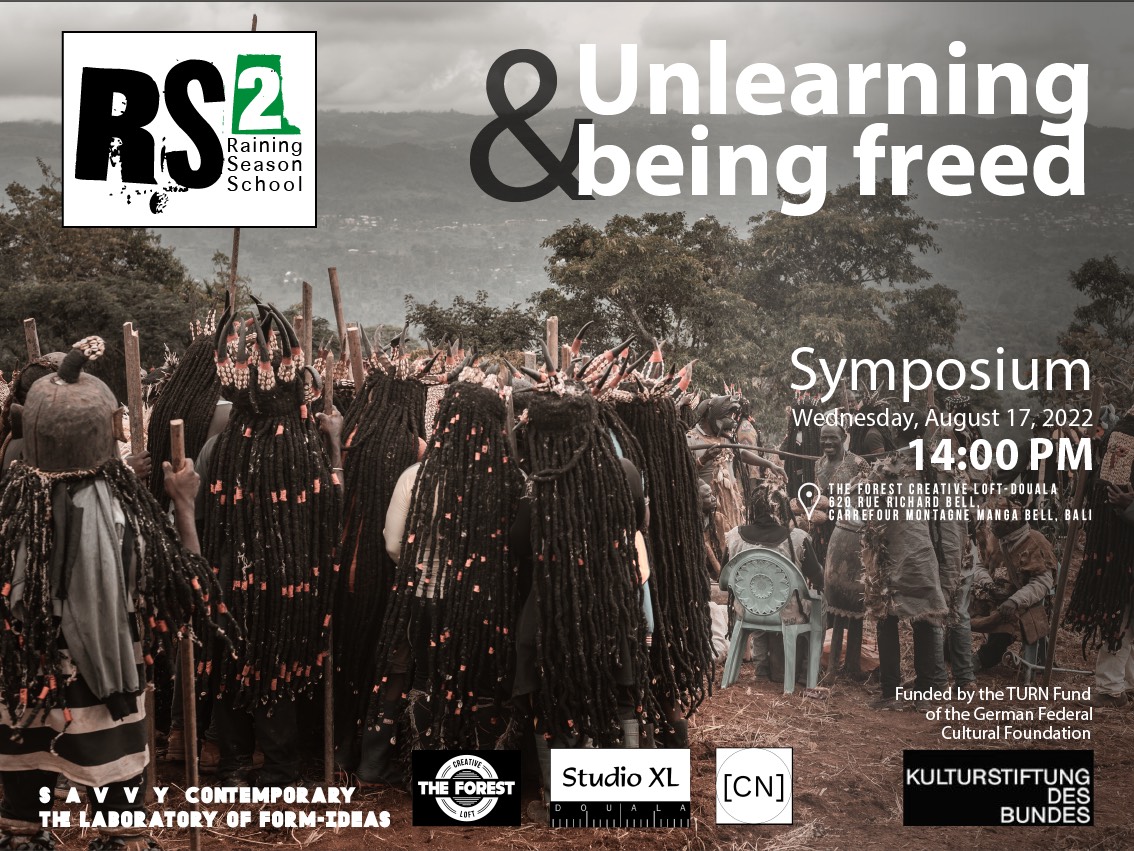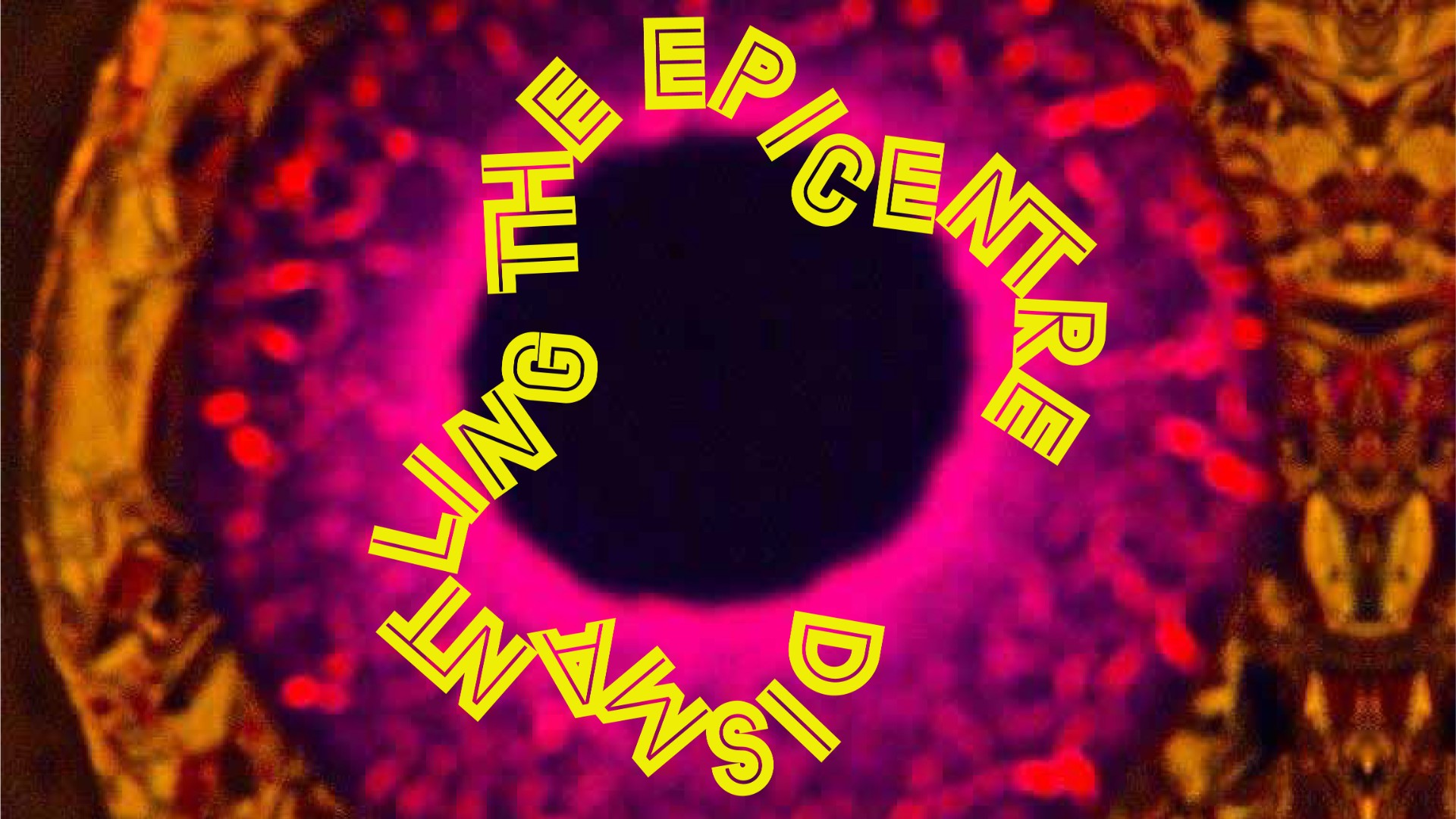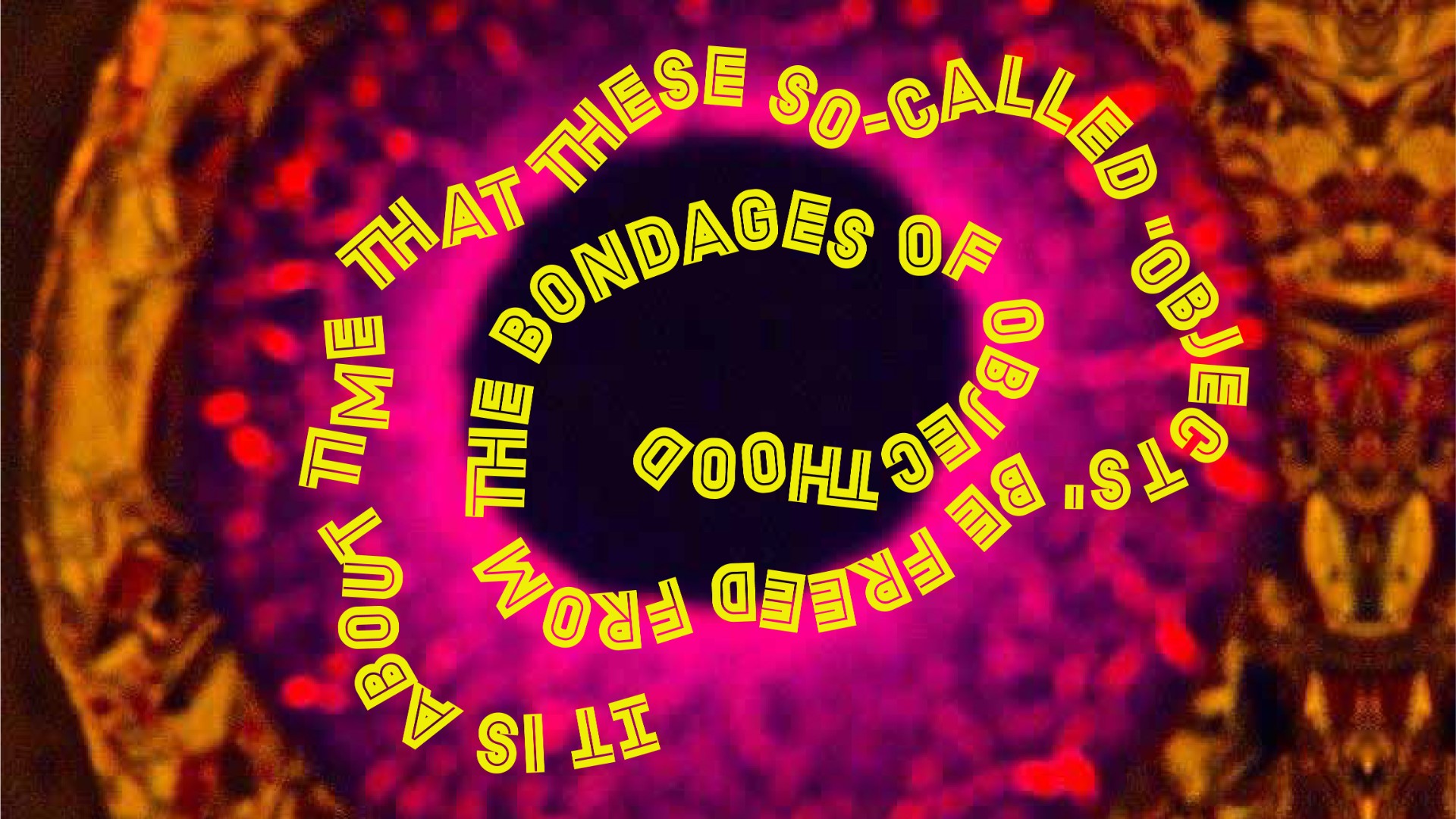FOR THE PHOENIX TO FIND ITS FORM IN US.
On Restitution, Rehabilitation, and Reparation
A SAVVY Contemporary project in collaboration with Jameel Arts Centre, Dubai, and ifa Gallery Berlin

research, exhibition, performanceS and publications
EXHIBITIONS
OPENING 23.06.2021 16:00–22:00
AT SAVVY Contemporary
ON VIEW 24.06.–22.08.2021 Thursday–Sunday 14:00–19:00
With limited access to the exhibition on 20.08–22.08, due to the INVOCATIONS
WITH Basel Abbas & Ruanne Abou-Rahme, Rand Abdul Jabbar, Tanya Aguiñiga, Nora Al-Badri, Daniela Zambrano Almidón & Pablo Santacana López, Memory Biwa, Benji Boyadgian, Hamze Bytyçi, Nora Chipaumire, Julien Creuzet, Ndidi Dike, Gladys Kalichini, Maurice Mboa, Senzeni Mthwakazi Marasela, Noara Quintana, Michael Rakowitz, Gabriel Rossell Santillán, Akram Zaatari
And Saitabao Kaiyare & Elena Schilling (SAVVY.doc)
AT ifa Gallery Berlin
ON VIEW 24.06.–29.08.2021 Tuesday–Sunday 14:00–18:00 (Thursday until 20:00)
WITH Pio Abad, Samia Henni, Jumana Manna, Oumar Mbengue Atakosso, Bhavisha Panchia, Michael Rakowitz
VISIT No Covid test or pre-registration needed. Please wear a mask and keep distance.
Invocations 20.08.–22.08.2021
SAVVY Tours in SAVVY Tongues
08.07.2021 | 16:00–17:00 | Deutsch | ifa-Gallery | With Arlette |
| 18:00–19:00 | Deutsch | SAVVY Contemporary | With Arlette | |
| 15.07.2021 | 16:00–17:00 | English | ifa-Gallery | With Arlette |
| 18:00–19:00 | English | SAVVY Contemporary | With Arlette | |
| 22.07.2021 | 16:00–17:00 | Français | ifa-Gallery | With Arlette |
| 18:00–19:00 | Français | SAVVY Contemporary | With Arlette |
06.08.2021 | 17:00–18:00 | Castellano | SAVVY Contemporary | With Raisa |
| 12.08.2021 | 16:00-17:00 | English | ifa-Gallery | With Elena |
| 17:30-18:30 | English | SAVVY Contemporary | With Elena | |
19.08.2021 | 16:00-17:00 | Italian | ifa-Gallery | With Elena |
| 17:30-18:30 | Italian | SAVVY Contemporary | With Elena |
LABORATORIES
This project is being developed in local laboratories with our international partners (January 2021–June 2022):
::: The Forest (facilitated by Chantal Edie) in Douala (Cameroon)
::: Nosona Studios (facilitated by Enotie Ogbebor and Victor Ehikhamenor) in Benin (Edo State, Nigeria)
::: Iriba Center (facilitated by Assumpta Mugiraneza) in Kigali (Rwanda)
::: Sakiya (facilitated by Sahar Qawasmi) in Ramallah (Palestine)
::: TBC (facilitated by Oscar Murillo) in Colombia
::: TBC (facilitated by Marian Pastor Roces) in Philippines
::: Jameel Arts Centre (facilitated by Nora Razian and Rahul Gudipudi) in Dubai, UAE
Tuesday: The Phoenix
It is enough that you pass by words
For the phoenix to find its form in us,
And for the spirit born of its spirit to give birth to a body…
Spirit cannot do without a body
To fire with itself and for itself, cannot do without a body
To purge the soul of what it has hidden from eternity
So let’s take fire, for nothing, but that we become one!
How does one complicate the current discourse on restitution, which seems to have manoeuvred itself into a cul de sac? The debates centre the notion of return, thereby limiting the rather expansive and layered subject of restitution. The notion of return, as colloquially used, means going back to a particular geo-spatial space. But to return, one must have a sense of a space and time of departure. Which is to say we cannot think of restitution without thinking of the wounds that were inflicted upon dispossession at any given time, as well as the violences that accompany epistemic, material or human deprivation and destruction, as we see in Anglophone Cameroon, in Palestine, in Myanmar or in Colombia. We cannot reduce restitution to the return of objects while the people who are to receive these objects neither have the luxury of breathing, nor the lands on which to plant their seeds, or are deprived of the abode in which they shelter. So, how can we deliberate restitution in a context wherein time and space have not only changed but have become more precarious and the savagery of coloniality has assumed other forms?
With the project FOR THE PHOENIX TO FIND ITS FORM IN US. On Restitution, Rehabilitation, and Reparation, SAVVY Contemporary is dedicating a series of laboratories, Invocations, publications, and exhibitions on the entanglements of the three key subjects restitution, rehabilitation, and reparation as a possibility of going beyond the notion of just return. Together with artists, writers, and other intellectuals and activists we intend to reflect on notions of restoration – not only of the subjects/objects taken away from peoples and particular places, but also to think of a restoration of the peoples and places that have had to exist in a state of cultural and psychological deprivation. This demands of us to think of any form of restoration as a possibility of re-integration, and rehabilitation. Which is to say the possibility of re-accommodating beings once taken away into systems that have experienced both time and spatial shifts.
We also intend to cogitate the connection between the forceful seizure of subjects/objects, their storage in ethnographic museums in Europe and North America, and the destruction of the techno-heritage of many places in the non-West. Looking at the destruction of spiritual entities when they are locked up in ethnographic museums, also demands the acknowledgement that histories of technologies were destroyed and these too have to be restored.
With this project, we intend to address the restitution debate from a different positionality within the German context and beyond, advocating for more inclusion of different perspectives and voices. Critically questioning and contemplating the role of European institutions and ethnological museums – examining precisely the political, economic and institutional contexts in which these organisations situate themselves – we wish to ponder the power structures, the asymmetries and the colonial continuities within the discourse. Confronting ourselves with possibilities of complicating the current discourse with situated reflections around issues of rehabilitation and reparation, we strive to entangle the perspective of artists, activists, and engaged communities with the ones of scholars, researchers, and institutions: to offer a platform for a decentralised discussion able to include voices and positions across geographies and disciplinary perspectives.
Listen to Things
More often than Beings,
Hear the voice of fire,
Hear the voice of water.
Listen in the wind,
To the bush that is sobbing:
This is the ancestors, breathing.
24 يونيو 2021 – 22 أغسطس 2021 | سافي كونتمبوراري (ألمانيا)
24 يونيو 2021 – 29 أغسطس 2021 | معرض إيفا برلين
مشروع "حتى تجد العنقاء صورتها فينا: عن الاسترداد، إعادة التأهيل، والتعويض" عبارة عن برنامج أبحاث ومعارض ودعوات ومطبوعات، تنفذه سافي كونتمبوراري بالتعاون مع مركز جميل للفنون ومعرض إيفا برلين، ويقام المعرض في كلمن سافي كونتمبوراري ومعرض إيفا برلين.
يتأمل معرض "حتى تجد العنقاء صورتها فينا" في مسائل الاسترداد وإعادة التأهيل والتعويض، لإثراء الخطاب حول نزع ملكية التراث المادي. وهو يتجاوز مجرد الحديث عن إعادة المقتنيات والمصنوعات اليدوية، نحو النظر في الآثار غير المادية لفقدان هذا السلب الثقافي والروحي في كثير من الأحيان
، وكذلك الظروف الاجتماعية الحالية للمجتمعات المتضررة التي يجب أن يجري في ظلها أي عمل إصلاحي وتأهيلي.
ويقدم المعرض أعمال كل من باسل عباس وروان أبو رحمة، رند عبد الجبار، تانيا أجوينيغا، نورا البدري، دانييلا زامبرانو ألميدون، بابلو سانتاكانا لوبيز، ميموري بيوا، بنجي بويدجيان، حمزة بايتجي، نورا شيباومير، جوليان كاليشيني، نديدي دايك، غلاديس كاليتشيني، موريس مبوا، سينزينيمثواكازيماراسيلا، نوارا كينتانا، مايكل راكوفيتز ، غابرييل روسيل سانتيلان، وأكرم زعتري في سافي كونتمبوراري؛
Team
ARTISTIC DIRECTion Bonaventure Soh Bejeng Ndikung (SAVVY Contemporary)
curators Elena Agudio, Arlette-Louise Ndakoze (SAVVY Contemporary), Nora Razian and Rahul Gudipudi (Jameel Arts Centre), Alya Sebti (ifa Gallery Berlin)
Team SAVVY Contemporary
Exhibition Production António Pedro Mendes
PRODUCTION ASSISTANCE Billy Fowo
CURATORIAL ASSISTANCE (Exhibition) Kelly Krugman, Meghna Singh
CURATORIAL ASSISTANT & EDITOR (Research and Bulletins) Sagal Farah, Meghna Singh
COORDINATION LABORATORIES Billy Fowo
MANAGEMENT Lynhan Balatbat-Helbock, Lema Sikod
COMMUNICATIONS Anna Jäger
GRAPHIC DESIGN Juan Pablo García Sossa
ART HANDLING Kimani Joseph, Rafal Lazar
LIGHT DESIGN Emilio Cordero
TECH Bert Günter
TEAM ifa Gallery
CO-DIRECTORS Inka Gressel & Susanne Weiß
EXHIBITION PRODUCTION Stefano Ferlito, Ev Fischer, and Matthias Merker
DIGITAL COMMUNICATION Anna Giannessi
COLLABORATION This is a SAVVY Contemporary project in collaboration with Jameel Arts Center, Dubai and ifa Gallery Berlin.
FUNDING The project is funded by the Kulturstiftung des Bundes (German Federal Cultural Foundation), Art Jameel and ifa Gallery Berlin. The installation “The invisible enemy should not exist” by Michael Rakowitz is made possible by courtesy of Galerie Barbara Wien.





